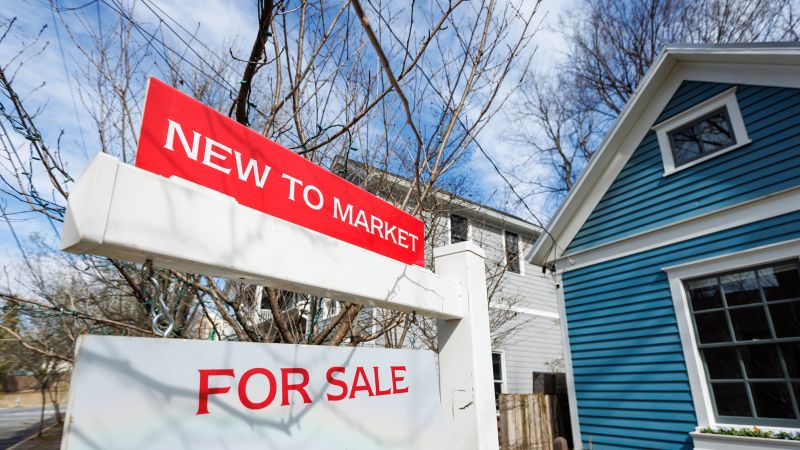Americans are living through the toughest housing market in a generation and, for some young people, the quintessential dream of owning a home is slipping away.
Mortgage rates surged in recent years, hitting the highest levels in more than two decades last fall. While rates have come down slightly since then, home prices remain painfully elevated and a limited inventory of housing is still failing to keep up with demand. Such conditions mean that housing has become woefully unaffordable.
Falling mortgage rates in recent weeks have helped, but home prices could remain sticky, according to economists. It’s still a cruddy time to be hunting for a home, but it’s even worse for young, first-time buyers who need to save up for a down payment and build up their credit score during a time when Baby Boomers are refusing to part with their big houses.
The situation isn’t a whole lot better for renters, with rents barely coming down from record highs and half of tenants in that market saying they can’t even afford their payments.
The uneasiness over America’s affordability crisis is captured clearly in surveys and polls, but data that outlines the sentiment specifically among young people is limited.



A few actually, None of them currently legal.
Do you know why they aren’t legal? Because the whole deal with representative democracy is, in the end, to wait for the people that I elect to solve my problems. Because it is tedious and time-consuming if I have to fight every battle on my own. It’s also unfair because most of my problems exist because of unfairly distributed wealth, which makes the fights I’d have to take quite unbalanced. Acknowledging this has nothing to do with being lazy or cowardly it’s just a reality. A reality that you can run away from by “taking it into your own hands and move into less desirable regions” or you can try to change the rules that allow the problem to exist in the first place.
I mean, you support the disparity in wealth when you think you deserve more before others who have less.
If living in cheaper areas isn’t good enough for you, why should you get more before the people who live in these places? You already have more than them, but you think you deserve even more without being able to afford it.
That’s textbook entitlement and hypocrisy. This is why you people get mad whenever I suggest moving to cheaper areas. You don’t want to acknowledge your own contribution to the problems.
That is just… mathematically wrong.
What you are doing is textbook for trying to make the lower classes fight amongst themselves. Yes there are disparities between the people belonging to one class but they are way way smaller than the disparities between the classes. It’s also a strawman argument. Just saying “I don’t want to be priced out of my home” is not asking for more. It’s literally asking for no change.
I get mad because you identify the wrong problem. The problem is not with people not wanting to leave their homes the problem is with the system pricing people out of their homes.
And that shows how deeply flawed representative democracy is and how much of a failure it is at protecting people’s best interests.
Next society we build should be a network of direct democracies.
I’m not sure that particular problem would be solved better in a more direct democracy. The issue is that a lot of people consistently vote against their own interests, which would habe the same effect in both systems
Doesn’t anyone examine why and try to fix it?